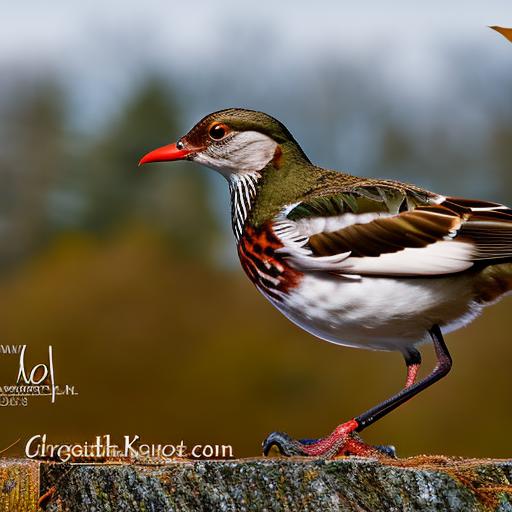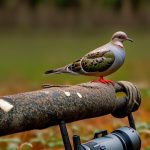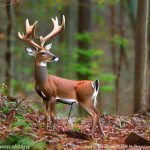Your cart is currently empty!

dove hunts in nc

Dove hunting is a popular activity among hunters in North Carolina. It offers a thrilling and challenging experience, as well as an opportunity to connect with nature and enjoy the great outdoors. North Carolina is known for its diverse landscapes, which provide ideal habitats for doves. From open fields to agricultural areas, there are plenty of locations throughout the state where hunters can pursue this game bird.
Dove hunting has become a tradition for many hunters in North Carolina. It is a social activity that brings friends and family together, creating lasting memories and bonding experiences. The thrill of the hunt, the camaraderie among fellow hunters, and the satisfaction of a successful harvest are just some of the reasons why dove hunting is so popular in the state.
Key Takeaways
- Dove hunting is a popular sport in North Carolina, with a rich history and culture.
- The best places for dove hunting in NC include fields, farms, and wildlife management areas.
- Regulations and licensing for dove hunting in NC are important to follow, including bag limits and hunting hours.
- Essential gear and equipment for dove hunting in NC include a shotgun, ammunition, and camouflage clothing.
- Tips for successful dove hunting in NC include scouting the area beforehand and practicing shooting skills.
- The ideal time and season for dove hunting in NC is typically from September to November.
- Safety precautions for dove hunting in NC include wearing eye and ear protection and being aware of other hunters in the area.
- The benefits of dove hunting in NC include enjoying the outdoors, improving shooting skills, and providing a source of food.
- The history and culture of dove hunting in NC dates back to colonial times and is still celebrated today.
- Alternatives to dove hunting in NC for non-hunters include birdwatching and hiking in wildlife areas.
The Best Places for Dove Hunting in NC
North Carolina offers a variety of prime locations for dove hunting. Some of the top spots include the Pee Dee National Wildlife Refuge, Sandhills Game Land, and Croatan National Forest. These areas provide ample food sources and cover for doves, making them ideal habitats for hunting.
The Pee Dee National Wildlife Refuge is located in Anson County and covers over 8,500 acres of land. It offers a mix of open fields, agricultural lands, and forested areas, providing diverse habitats for doves. The refuge also has designated dove fields that are managed specifically for hunting purposes.
Sandhills Game Land is another excellent location for dove hunting in North Carolina. Located in Richmond County, this game land covers over 60,000 acres of rolling hills and pine forests. It offers a variety of habitats that attract doves, including open fields, agricultural lands, and water sources.
Croatan National Forest is situated in eastern North Carolina and covers over 160,000 acres of land. It features a mix of pine forests, swamps, and open fields that provide ideal habitats for doves. The forest offers several designated dove fields that are open to hunters during the season.
Regulations and Licensing for Dove Hunting in NC
Before heading out for dove hunting in North Carolina, it is important to familiarize yourself with the regulations and licensing requirements. The North Carolina Wildlife Resources Commission (NCWRC) sets the rules and regulations for hunting in the state.
In order to hunt doves in North Carolina, hunters must possess a valid hunting license and a migratory bird permit. The hunting license can be obtained online through the NCWRC website or at various license agents throughout the state. The migratory bird permit is included with the purchase of a hunting license.
It is also important to note that there are specific regulations regarding bag limits, shooting hours, and equipment restrictions for dove hunting in North Carolina. Hunters are allowed a daily bag limit of 15 mourning doves, with a possession limit of 45. Shooting hours for dove hunting are from 30 minutes before sunrise to sunset. Only non-toxic shot is allowed when hunting doves.
Essential Gear and Equipment for Dove Hunting in NC
To have a successful dove hunting experience in North Carolina, it is essential to have the right gear and equipment. Here is a list of some of the necessary items:
1. Shotgun: A 12 or 20-gauge shotgun is recommended for dove hunting. It should be lightweight and easy to maneuver.
2. Ammunition: Use size 7 1/2 or 8 shot shells for dove hunting. Non-toxic shot is required in North Carolina.
3. Camouflage Clothing: Wear camouflage clothing that matches the surrounding environment to blend in with your surroundings.
4. Decoys: Dove decoys can be used to attract doves to your hunting area. Place them strategically to create a realistic setup.
5. Stool or Chair: A comfortable stool or chair is essential for long hours of sitting and waiting for doves to fly by.
6. Binoculars: Binoculars are useful for scouting and identifying doves in the distance.
7. Cooler: Bring a cooler to store harvested doves and keep them fresh until you can clean and prepare them.
When choosing gear and equipment for dove hunting, it is important to consider factors such as comfort, durability, and functionality. Invest in quality gear that will last for many hunting seasons.
Tips for Successful Dove Hunting in NC
To improve your chances of a successful dove hunting experience in North Carolina, here are some tips to keep in mind:
1. Scout the Area: Before the hunting season begins, spend time scouting the area to identify prime locations where doves are likely to be found. Look for areas with food sources, water, and cover.
2. Set Up Early: Arrive at your hunting spot well before sunrise to set up decoys and get settled in. Doves are most active during the early morning hours, so being in position early will increase your chances of success.
3. Concealment: Use natural cover or a portable blind to conceal yourself from the doves. Camouflage clothing and face paint can also help you blend in with your surroundings.
4. Shoot Responsibly: Be aware of your surroundings and only take shots that are safe and ethical. Avoid shooting at low-flying birds or birds that are out of range.
5. Practice Shooting: Spend time at the shooting range before the hunting season to improve your accuracy and shooting skills. Practice shooting at moving targets to simulate real hunting situations.
6. Stay Still: Doves have excellent eyesight and can detect movement easily. Once you are in position, try to remain as still as possible to avoid spooking the birds.
7. Be Patient: Dove hunting requires patience and persistence. Be prepared to spend long hours waiting for doves to fly by. Stay focused and alert, as doves can appear suddenly and fly quickly.
The Ideal Time and Season for Dove Hunting in NC
The best time of year for dove hunting in North Carolina is during the early fall season. The North Carolina dove hunting season typically opens on September 1st and runs through early January. This is when doves are migrating south for the winter and are abundant in the state.
Factors such as weather conditions, food availability, and hunting pressure can affect dove hunting success. Doves are most active during the early morning and late afternoon hours when they are feeding. It is important to be in position during these times to maximize your chances of encountering doves.
Safety Precautions for Dove Hunting in NC
Safety should always be a top priority when dove hunting in North Carolina. Here are some important safety precautions to follow:
1. Wear Hunter Orange: North Carolina law requires hunters to wear a minimum of 400 square inches of hunter orange on their head, chest, and back when hunting doves.
2. Identify Your Target: Always positively identify your target before taking a shot. Do not shoot at low-flying birds or birds that are out of range.
3. Be Aware of Your Surroundings: Know the location of other hunters in the area and communicate with them to avoid accidents.
4. Follow Safe Gun Handling Practices: Treat every firearm as if it is loaded and always keep the muzzle pointed in a safe direction. Keep your finger off the trigger until you are ready to shoot.
5. Use Ear and Eye Protection: Wear ear protection to protect your hearing from loud gunshots, and wear eye protection to prevent injury from flying debris.
6. Know the Hunting Regulations: Familiarize yourself with the hunting regulations and follow them at all times.
The Benefits of Dove Hunting in NC
Dove hunting in North Carolina offers several benefits, both for hunters and for the local communities. From a health perspective, dove hunting provides an opportunity for physical activity and exercise. It involves walking, carrying gear, and shooting, which can help improve cardiovascular health and overall fitness.
Dove hunting also has economic benefits for local communities. It attracts hunters from out of state who spend money on lodging, meals, and other services. This can boost the local economy and support small businesses in rural areas.
The History and Culture of Dove Hunting in NC
Dove hunting has a long history in North Carolina and is deeply rooted in the state’s culture. It has been a traditional activity for many generations of hunters, passed down from parents to children. Dove hunting season is eagerly anticipated by many hunters, who see it as a time to reconnect with nature and carry on a cherished tradition.
Dove hunting also holds cultural significance in North Carolina. It is a social activity that brings friends and family together, fostering a sense of community and camaraderie. Many hunters view dove hunting as more than just a sport; it is a way of life and a celebration of the state’s rich hunting heritage.
Alternatives to Dove Hunting in NC for Non-Hunters
For those who are not interested in hunting, North Carolina offers a wide range of outdoor activities to enjoy. The state is known for its beautiful landscapes, including mountains, beaches, and forests, which provide opportunities for hiking, camping, fishing, and wildlife viewing.
The Blue Ridge Parkway offers stunning views of the Appalachian Mountains and is a popular destination for scenic drives and hiking trails. The Outer Banks is a popular beach destination with miles of pristine coastline and opportunities for swimming, surfing, and fishing.
North Carolina also has numerous state parks and wildlife refuges that offer opportunities for outdoor recreation. These areas provide trails for hiking and biking, as well as opportunities for birdwatching and wildlife photography.
Dove hunting in North Carolina offers a thrilling and rewarding experience for hunters. With its diverse landscapes and abundant dove populations, the state provides ideal habitats for this game bird. By following the regulations, obtaining the necessary licenses, and using the right gear, hunters can have a successful and enjoyable dove hunting season.
For non-hunters, North Carolina offers a variety of outdoor activities to enjoy. From hiking and camping to fishing and wildlife viewing, there are plenty of opportunities to explore the state’s natural beauty and connect with nature. Whether you choose to try dove hunting or engage in other outdoor activities, North Carolina has something for everyone to enjoy.
If you’re interested in dove hunts in North Carolina, you might also want to check out this informative article on how to hunt rabbits with a .22 caliber rifle. It provides valuable tips and techniques for successful rabbit hunting. Whether you’re a seasoned hunter or just starting out, this article from Old Oak Syndicate is a great resource to enhance your hunting skills. Read more
FAQs
What is a dove hunt?
A dove hunt is a type of hunting where hunters shoot doves for sport or food.
When is dove hunting season in North Carolina?
Dove hunting season in North Carolina typically runs from early September to early January.
What are the regulations for dove hunting in North Carolina?
Hunters must have a valid North Carolina hunting license and a migratory bird permit to hunt doves in North Carolina. There are also regulations on bag limits, shooting hours, and hunting locations.
What is the bag limit for dove hunting in North Carolina?
The bag limit for dove hunting in North Carolina is 15 birds per day.
What equipment do I need for dove hunting in North Carolina?
Hunters typically use a shotgun, ammunition, and camouflage clothing for dove hunting. It is also recommended to bring water, snacks, and insect repellent.
Where can I find dove hunting opportunities in North Carolina?
Dove hunting opportunities can be found on private land or public hunting areas in North Carolina. The North Carolina Wildlife Resources Commission provides a list of public hunting areas on their website.

Herb has been a longtime lover of the outdoors. Whether it be hunting, camping, fishing or just getting outside to reset. Proud father and animal lover. Bourbon anyone?

by
Tags:
Comments

Categories
- Big Game Hunting (301)
- Deer (202)
- Reviews (3)
- Shooting (16)
- Slingshot (1)
- Small Game Hunting (42)
- Upland Hunting (126)
- Waterfowl Hunting (3)





Leave a Reply